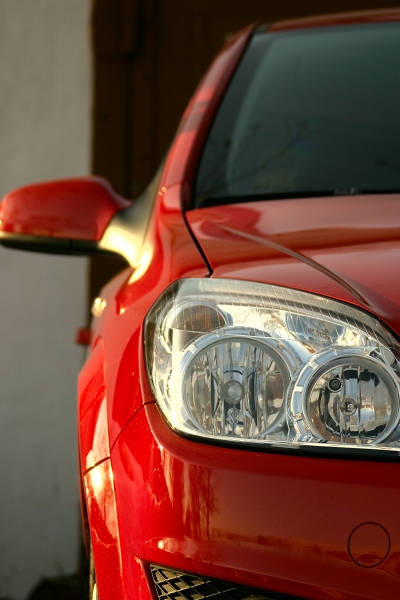While it may be most people’s dream to have a shiny, brand new car parked on the driveway, for many purchasing a used car is a more realistic and affordable option. New cars are notorious for depreciating rapidly in their first year so, if budget is a consideration (as well as future trade-in value), a used car can offer a more cost-effective solution. A vehicle that is only a year or two old may well have the balance of the manufacturer’s warranty and be exempt from MOT tests until 36 months old, while an older car – if sourced from a reputable seller – can prove to offer excellent value. Plan ahead for motoringWhen planning a used car purchase, bear in mind that there are considerable running costs which tend to vary depending on the make, the age and the engine size of the vehicle. From tax to insurance and fuel economy to maintenance, the costs of maintaining a car can spiral so it makes good sense to anticipate the impact on your wallet before you buy.Car tax may now be disc-free but the obligation to purchase remains. As the charges are not always easy to predict, using the DfT’s calculator is an essential pre-purchase step, while an expert website such as parkers.co.uk can give you an insight into the likely running costs of your favourite four-wheeler.View wisely
Plan ahead for motoringWhen planning a used car purchase, bear in mind that there are considerable running costs which tend to vary depending on the make, the age and the engine size of the vehicle. From tax to insurance and fuel economy to maintenance, the costs of maintaining a car can spiral so it makes good sense to anticipate the impact on your wallet before you buy.Car tax may now be disc-free but the obligation to purchase remains. As the charges are not always easy to predict, using the DfT’s calculator is an essential pre-purchase step, while an expert website such as parkers.co.uk can give you an insight into the likely running costs of your favourite four-wheeler.View wisely Viewing a car before you commit to buying is obviously essential but beware of sellers who want you to see the vehicle at times of the day when light is poor. Darkness and rain can obscure a variety of non-standard modifications such as paintwork scratches and dents which could prove costly to repair (warning: respraying is expensive).Similarly a test drive is unavoidable, irrespective of the service history or length of MOT. Simply viewing a car from the outside can’t tell you about spongy brakes, wandering steering, noisy exhausts or a whole plague of other mechanical problems.Ask the right questionsSadly, car sellers cannot always be believed and the opportunity for fraud is huge. Insist on seeing the V5C document which will tell you who the registered keeper is – if the seller isn’t the keeper, ask why not. You should also attempt to trace the service history of the car, so check the service record book (have services been carried at the right intervals by a qualified technician?) and previous MOT certificates, looking carefully at the ‘Advisory’ section for recommended work which falls outside of the MOT test itself.A car that has been well-maintained should have a continuous history and should offer you greater confidence when purchasing (though expect to pay a little more, quite rightly, for the reassurance).Know your VIN from your HPI?You should also check the car’s VIN (vehicle identity number) against the number stated on the V5C to ensure it is the same. The VIN is usually stamped on a metal plate somewhere under the bonnet; if it is difficult to read or appears to have been deliberately damaged, ask serious questions about the honesty of the seller.Existing HP (hire purchase) on a vehicle effectively means that you don’t own all of the car, irrespective of what you pay for it, so it’s quite likely that the vehicle could be seized to recover losses for a credit lender. A simple HPI check will ascertain that no outstanding finance remains: in other words, the car is all yours.Purchasing a used car is a serious business which takes time and research but, equipped with the right information, you can be confident of making a decision which you can be confident about.
Viewing a car before you commit to buying is obviously essential but beware of sellers who want you to see the vehicle at times of the day when light is poor. Darkness and rain can obscure a variety of non-standard modifications such as paintwork scratches and dents which could prove costly to repair (warning: respraying is expensive).Similarly a test drive is unavoidable, irrespective of the service history or length of MOT. Simply viewing a car from the outside can’t tell you about spongy brakes, wandering steering, noisy exhausts or a whole plague of other mechanical problems.Ask the right questionsSadly, car sellers cannot always be believed and the opportunity for fraud is huge. Insist on seeing the V5C document which will tell you who the registered keeper is – if the seller isn’t the keeper, ask why not. You should also attempt to trace the service history of the car, so check the service record book (have services been carried at the right intervals by a qualified technician?) and previous MOT certificates, looking carefully at the ‘Advisory’ section for recommended work which falls outside of the MOT test itself.A car that has been well-maintained should have a continuous history and should offer you greater confidence when purchasing (though expect to pay a little more, quite rightly, for the reassurance).Know your VIN from your HPI?You should also check the car’s VIN (vehicle identity number) against the number stated on the V5C to ensure it is the same. The VIN is usually stamped on a metal plate somewhere under the bonnet; if it is difficult to read or appears to have been deliberately damaged, ask serious questions about the honesty of the seller.Existing HP (hire purchase) on a vehicle effectively means that you don’t own all of the car, irrespective of what you pay for it, so it’s quite likely that the vehicle could be seized to recover losses for a credit lender. A simple HPI check will ascertain that no outstanding finance remains: in other words, the car is all yours.Purchasing a used car is a serious business which takes time and research but, equipped with the right information, you can be confident of making a decision which you can be confident about.
Iconic One Theme | Powered by Wordpress
